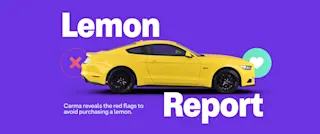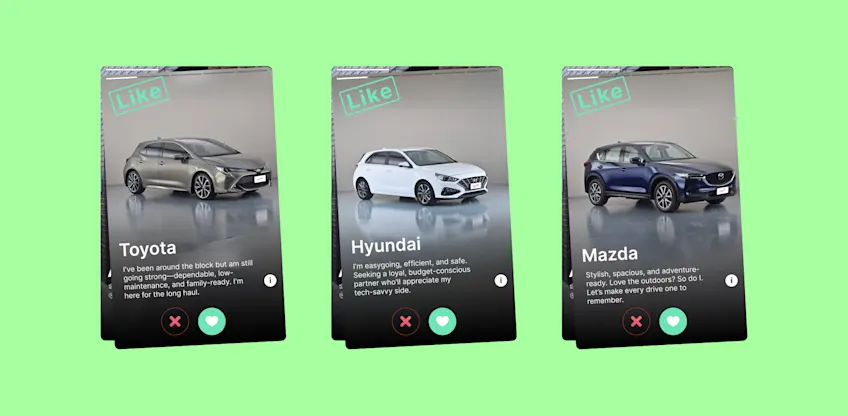
How to safely secure your dog in a car
Learn how to safely secure your dog in a car with our expert guide.

Buying a lemon—a car that’s discovered to have defects only after purchase—is every car buyer’s nightmare. With cost of living pressures, more Aussies are looking to trade in their vehicles for something more affordable. However, they need to stay vigilant and know how to spot a lemon before it’s too late.
With more than 50+ years of expertise working across all types of manufacturers, Carma - Australia’s fully digital pre-owned car platform - is revealing the red flags to avoid purchasing a lemon and the green flags to look out for. Carma’s team of automotive experts have looked at more than five thousand vehicles over the past three months and found that only a fraction of them were worthy of selling to buyers.
As part of our inspection process, we check everything from safety features down to fuses and filters. Over the past two decades, we’ve evaluated thousands of vehicles for conditional problems and would say four out of every five vehicles on the road have issues.
“The fact that 80-90% of vehicles have conditional problems can be concerning to the everyday buyer who doesn’t know how to tell the difference between aesthetic issues and mechanical or manufacturing problems,” said Peter Willis, Director of Buying. “This is why our team gets behind the wheel and under the bonnet of every vehicle we evaluate to see what mechanical work needs to be completed in order to function flawlessly.”
So how can you avoid purchasing a lemon? Here are some things you can look out for to protect yourself.

Toyota is synonymous with reliability, known for producing durable, low-maintenance vehicles that hold their value exceptionally well. Their commitment to quality engineering and efficient designs, like in models such as the Corolla and Camry, has built Toyota’s reputation for dependability over decades.
Hyundai combines affordability with impressive quality, offering vehicles that are both stylish and dependable. Their models come with comprehensive warranties, giving peace of mind to buyers. Known for their robust construction and advanced technology, Hyundai cars, like the Tucson and i30, offer consistent performance and longevity.
Mazda focuses on craftsmanship and innovative engineering, producing cars that are as reliable as they are fun to drive. Models like the Mazda 3 and CX-5 are known for their lasting quality, strong resale value, and low repair frequency, making Mazda a go-to for drivers seeking style and dependability.

Learn how to safely secure your dog in a car with our expert guide.

Torque vs. horsepower explained: Discover how these forces affect acceleration, towing, and top speed. Learn which matters most for your driving style at Carma.

Learn how to detail your exterior trim like a pro. From restoring faded plastic to UV protection, follow our DIY guide for a showroom finish.